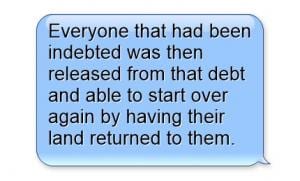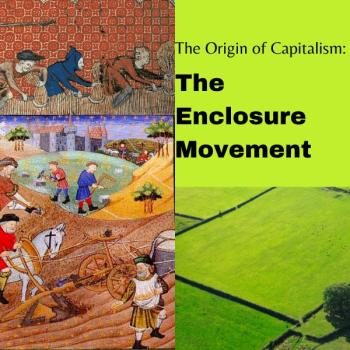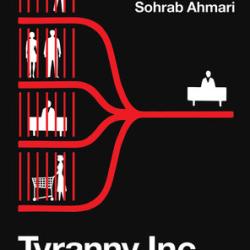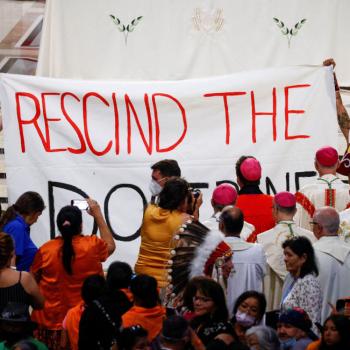An Imaginative Economic Venture

This is a strange economic time, this time of the covid-19 pandemic. Republicans who criticized Obama for spending hundreds of billions to pull the economy out of a recession are now spending trillions to accomplish the same thing. The super rich are coming under pressure to donate some of their billions to researching a corona cure and to charities combating economic devastation. Debt relief on the personal and national levels is a prominent discussion topic among economists. The Catholic Church had already in 1999 put debt forgiveness in the context of the Old Testament Jubilee Year. Pope John Paul II wrote:
In the spirit of the book of Leviticus (25:8-12), Christians will have to raise their voice on behalf of all the poor of the world, proposing the Jubilee as an appropriate time to give thought, among other things, to reducing substantially, if not cancelling outright, the international debt which seriously threatens the future of many nations.
Debt forgiveness was part, but only part, of what that Leviticus text called for. The Old Testament Jubilee was a comprehensive approach, and current proposals don’t match it. That is what this post will try to do, albeit as an imaginative exercise. What might a real Jubilee look like today?
Jubilee in the Bible
Jesus came to his hometown of Nazareth and preached in the synagogue. His text was from Isaiah:
The Spirit of the Lord is upon me, because he has anointed me to bring glad tidings to the poor. He has sent me to proclaim liberty to captives and recovery of sight to the blind, to let the oppressed go free, and to proclaim a year acceptable to the Lord.” (Luke 4:18)
Whatever Jesus, and Isaiah before him, meant by “year acceptable to the Lord,” I have the feeling that poor and rich alike who heard him were thinking Jubilee. And when he said, “Today this Scripture passage is fulfilled in your hearing,” they must have marveled at his audacity. Is this son of a carpenter saying that he by himself can proclaim a Jubilee Year?
Luke’s Gospel goes on to relate a quarrel between Jesus and the townspeople, rich ones I suspect. The Jubilee Year was a once-every-50-years event that probably never actually happened. If you were rich, you would likely want to make sure it didn’t. Here, with help from Bible scholar William Bauer, is what Leviticus envisions for every 50th year:
Personal liberty
It was a common lot for an Israelite peasant to have to sell himself into slavery to a fellow Israelite. One poor crop might mean failure to pay the rent or taxes or pay back the loan with which the farmer bought seed. The farmer would lose his land in consequence. In a Jubilee year all slaves would regain their freedom.
Restitution of property
All lands which changed hands in the previous 50 years would go back to the family that previously owned it. In agrarian society land is wealth. The Book of Joshua describes an original distribution of land. Jubilee envisions starting over in wealth accumulation every 50 years.
The simple life
“Simple life” is how Bauer describes the next provision. Every seventh year, the Sabbatical years, Israelites were to let their land lie fallow, producing only what grew by itself. The 50th, or Jubilee, year would be a second consecutive year of “rest” for the land. It would be almost like going back to the hunter-gatherer lifestyle with a lot of trust in the Lord.
A workable system?
Accustomed as we are to our own neo-liberal capitalism, we might wonder how the Israelites imagined a system that restarted every 50 years could work. But the system, in its context, isn’t as crazy as it seems. Today if we were to dial the clock back 50 years, we would be passing over 50 years of an expanding economy and a growing population. Progress is our economic watchword. The ancient Israelite economy more nearly resembled a steady state, with only slow progress, if any. Nobody ever imagined a rising economic tide lifting all boats. What one person gained another lost in what was nearly a zero-sum game.
In such a system wealth isn’t lost in going back to a previous time, only redistributed. You can even see the moral desirability of a recurring Jubilee. It places a strict limit on how effectively the strong can oppress the weak and how far inequality, which is unavoidable under any system, can go. A strong person can acquire more and more property, including human beings; but, over the course of 50 years, the value of each item of property goes steadily downhill. No one would pay the same price for land or a slave in the 49th year as he would in the first year after a Jubilee. You pay only for the number of years you can expect to keep the property.
When it comes to real estate or people, it’s like renting rather than owning. Israelites came to believe that ownership belongs to God alone. God even imposed strict rules for the treatment of both slaves and the land.
Jubilee today: problems
The Old Testament Jubilee Year can’t make a comeback today without serious updating. Still, I think we can imagine more than some finely targeted debt relief. Debt relief, anyway, comes with its own set of problems: what debtors gain, creditors lose.
Remembering that this is an imaginative enterprise, I’d like to propose a kind of Jubilee for today, specifically for a time of corona-induced economic emergency. In this emergency the world is spending trillions of dollars that it does not have but will have to come from the future, i.e., our descendants. Spending is the right course of action, but I suggest we find the source of that money by turning around. We can get it from the past, that is, from past growth in the economy.
It’s that growth that makes an Old Testament style return to the past impossible. Today if people returned to the land they used to own, where would all the new people in a growing population go? And what about land that no longer exists in its prior state. I can imagine breaking up large farms into small ones, but what about land that’s been paved over or turned into oil fields or wind farms? What about when everybody at once has to decide what to do with the stuff they’ve accumulated in the last 50 years?
In a static or slowly changing economy these things might be manageable, but not in an economy where growth is a central feature. Anyway, growth has its good side, morally speaking. It may have been true at one time that the extra coat in your closet is one that you indirectly robbed from the person who has none Today it’s more complicated. Wealth is not static, the economy is not a zero-sum game, and rich people can get richer without somebody else getting poorer. The old Jubilee Year, whether it ever happened or not, was morally desirable; but today undoing economic growth is not.
Updating Jubilee
If Jubilee is going to work today, it needs a new form and an additional purpose. It would still be a way of preventing inequality from getting out of hand, but a well-ordered capitalism could also do that. In fact, for 40 years after the Great Depression inequality was lessening as the economy grew. Growth continued, but of a different kind, from the 1980’s on, and inequality soared. Today’s economy, neo-liberal capitalism, is not working.
If the economy were doing its job well, a Jubilee wouldn’t have to be regularly recurring. It could be just for emergencies. Even a well-run economy can be blindsided by emergencies. The coronavirus emergency and recession isn’t the economy’s fault. Regardless of fault, an emergency requires a lot of money, which a new Jubilee could find.
This Jubilee looks to the past, and we’d have to decide how many years to go back. To keep things manageable, it shouldn’t be too far. Maybe just 10 years back, provided it’s a time of a healthy economy, neither a recession nor the boom. Going back to that period wouldn’t be a matter of undoing all the changes since that time. It would just be a ten-year step back in wealth. It would take all the new money created in that period and put into a special account. Everyone, with exceptions in cases of need, would essentially be as rich as they were ten years ago. For most of us that would not be a big change, but for society’s big winners it would be huge. (See not at the end.) Most of the latter would be the ones who have very little to fear financially.
Problems, solutions …
Think of today’s situation. We’re planning on spending trillions of dollars to cope with an emergency, money that we don’t have. But in the last 10 years at least that much new money has been created, almost entirely among the top 20 percent.. Why not use this money instead of making our descendants pay?
This is an imaginary venture, but it’s still a good idea to consider obstacles. The first and most obvious is deciding who should give up how much. The answer to that, I suspect, would be to look at tax returns.
I can see several problems as we try to get at that wealth. Raiding a personal bank account and putting the money into the Jubilee account is easy enough, but most wealth isn’t that liquid. People can’t suddenly start selling stocks all at once. The Jubilee account would have to become owner of a large amount of wealth in the form of stocks. That stock could be sold gradually and also used as collateral for loans.
A different problem concerns all the wealth in the form of stuff people have accumulated. What would a Jubilee account do with a stockpile of yachts, private jets, third and fourth homes, swimming pools, snowbaby collections, tennis courts, and so on that people have gathered in the last 10 years? As many of these become available, each piece becomes a lot less valuable than they were to their original owners. The solution is for the owners to keep possession while transferring ownership. Rent would be paid to the Jubilee account.
… and one unexpected blessing
I can still see a problem if a lot of rich people decided they no longer wanted that tennis court or yacht etc. They had it free and clear and now they have to pay rent on it! I don’t have a good answer for that. But — in imagination now — what if Jubilee had been part of the American economy and even in our Constitution all along? Wouldn’t that have a sobering effect on people’s financial decisions. It would be like what the biblical Jubilee was meant to do. The Jubilee, even in its non-observance — told the Israelites that ownership, finally, is God’s alone.
If Jubilee were an available tool today, even if only for rare emergencies, we might think in a new way about ownership. The real prospect of needing to surrender some wealth and possessions for the common good might lead us to reconsider the process of amassing wealth and possessions.
The hoarder phenomenon has been getting a lot of play in the media and in the news. My limited acquaintance includes several persons who are foundering amidst their possessions and who can’t stop buying more. Could it be that hoarding is not a hopeless personal deficiency, as often depicted, but a symptom of a social disease? Could the cure be a change in society’s attitude toward things?
There was a time when people at least imagined a healthy attitude toward possessions, and Jubilee was a part of that. Perhaps talking about Jubilee can stir our imaginations and maybe even lead to action.
Some data on Americans’ wealth
Americans, on average, are wealthy. Paradoxically, most of us aren’t. Almost all the new wealth since the Great Recession has gone to the top 20 percent. American households’ total wealth, assets minus liabilities, was 98 trillion in 2018. In 2016 the top 20 percent held 77 percent of total wealth, almost three times as much as the middle 60 percent. The top one percent alone holds half again as much wealth as the middle 60 percent. (Source: Brookings Institution, “Six Facts about Wealth in the United States”
Image credit: Patheos












